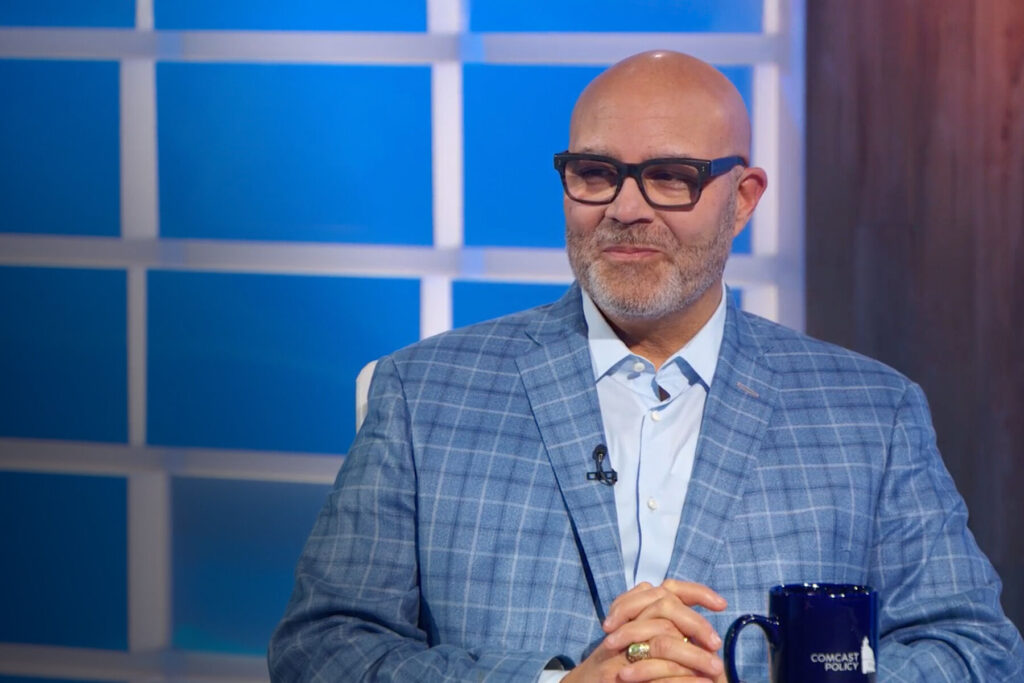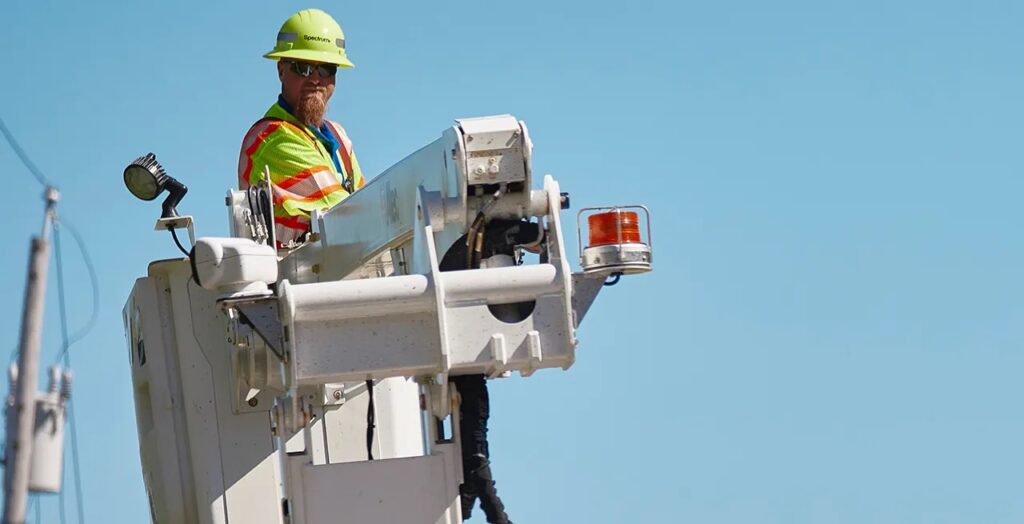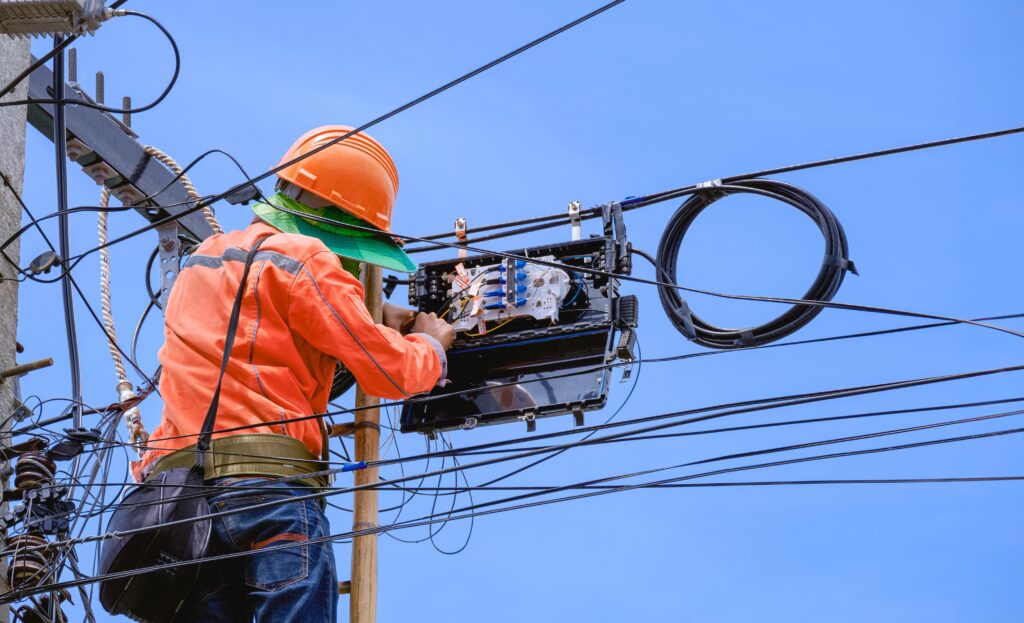There are many perks that come with living in a big city or suburb, and reliable, high speed internet is one of them. But one internet service provider is proving that living in small town America also has its advantages, especially when it comes to the personal relationships that communities have with their internet provider.
Eagle Communications is a rural provider for subscribers across Kansas, Missouri, Nebraska, and Colorado, and operates and offers cable systems, radio stations, IT support, business services and marketing solutions for towns as small as 25 subscribers to those that number in the thousands. But what truly sets Eagle apart, said Elizabeth Jaeger, director of marketing, are the employees and technicians who live in the communities they serve and who are constantly interacting with and advocating for customers – at the grocery store where they shop, the church they attend, or on the athletic fields cheering on their kids. Jaeger herself used to work for one of the local school districts before she began at Eagle.
A 100 percent employee-owned company, Eagle believes in “100 percent responsibility and zero excuses,” and according to Jaeger, that approach makes all the difference with how employees interact with customers. “I may happen upon an email from an upset customer and at the end of the day, this is my business, I own this company, so you treat that customer a little bit differently,” she said. So, whether it’s advocating for a single customer who wants an upgrade, or a channel in their TV package, the employees hear about it firsthand at community functions, and issues trickle up from there.
“You have to look those [customers] in the eye after you have a rate increase,” said Jaegar, further pointing out how different it is to serve a small community as opposed to a large population where employees aren’t necessarily immersed with their customers day in and day out. “And these investments in the communities to bring higher speeds come with a cost. So you have to have that trust and respect built with your customers,” she added.
Part of that trust also comes from the partnerships that Eagle builds with local nonprofits, businesses and schools. Connect2Compete is a program that Eagle has been involved in for five years now. A public-private nationwide initiative aimed at closing the digital divide and ensuring that families with students who qualify for free or reduced lunch have access to adequate internet in their homes, Eagle works closely with several school districts to ensure connectivity for low-income families at a reduced cost. Currently, the ISP helps schools disseminate information about the program by offsetting the postage costs for the free and reduced lunch confirmation forms that are sent to families and by including details about the Connect2Compete program in the mailings.
Like most people across the country, Eagle’s small town customers want what everyone wants – more robust and reliable speeds at affordable price points, and speeds that can handle multi-device environments – and Eagle works hard to make that a reality. “You’re looking at households that have upwards of 12 devices – smart TVs, security systems, kids with phones, tablets, laptops for school,” explained Jaeger of their customer base. One of the ISP’s most recent projects was bringing the town of Wray, Colo., up to speed with an internet upgrade of up to 100 Mbps, which, like most upgrades, took a lot of planning in advance to rollout, order the technology, get the gear installed, swap out modems and routers in the homes that weren’t equipped to handle higher speeds, test and finally light up customers.
Next up this summer, Eagle looks to focus on the community of St. Francis, Kan., as the ISP prepares to light up the town with speeds of up to 1 gigabit.
Home to 1,329 people, St. Francis is a unique story because Eagle and the community worked hard to put together and submit a grant application to the U.S. Department of Agriculture requesting funds for the broadband project. Though the grant was ultimately rejected because the USDA deemed that the town had adequate LTE coverage, in moving forward, the community formed a petition and gathered 900 signatures (in a town of only 1,300) that called for Eagle’s support in making the upgrade happen. “We realized it was a good investment for us this year, so we are moving forward and looking to lay fiber as early as May, and have customers scheduled and lit up as early as the end of June,” said Jaeger. While Eagle currently offers fiber, it mainly serves the business loop. This new buildout, however, will allow internet connectivity for the community of St. Francis as a whole.
“This summer is going to be busy, we’re trying to get these people installed as fast as we can,” said General Manager Travis Kohlrus. But because of Eagle’s strong ties with St. Francis, many people from the town will be working with the provider to make this happen. For example, the ISP and members from the community are working to recruit local high school students to serve as technician assistants, which will make the process more efficient, and the end result all the more personal and rewarding.
As Jaeger said of Eagle’s approach to its services, “When the world becomes flat in terms of product, the only thing that we feel sets you apart for your customers is that relationship you actually build with your customer. And that drives everything we do.”









